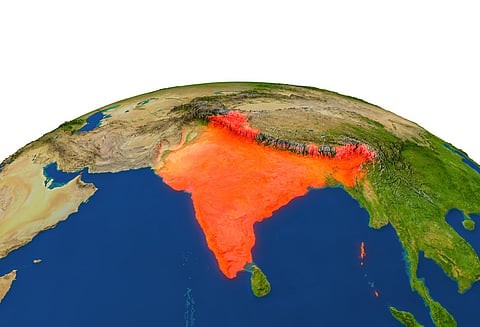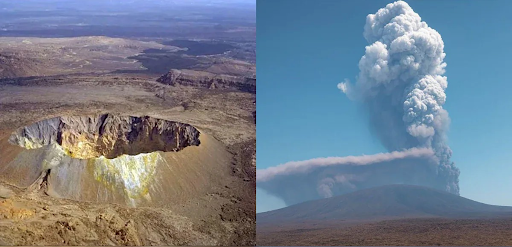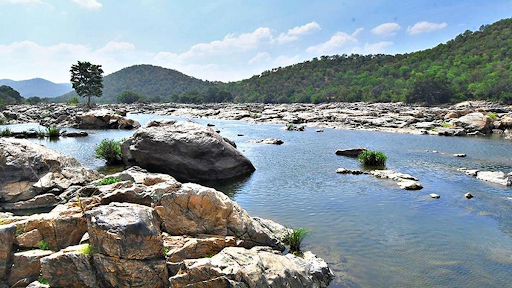Description
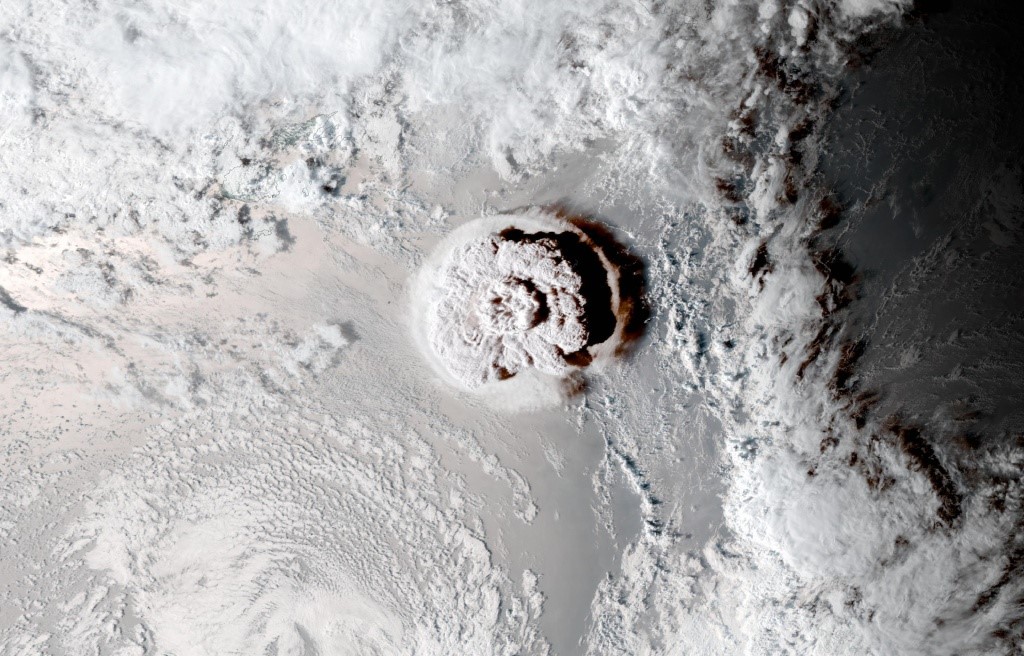
Copyright infringement not intended
Picture Courtesy: https://www.downtoearth.org.in/blog/natural-disasters/tonga-s-volcanic-eruption-could-cause-unusual-weather-for-the-rest-of-the-decade-new-study-shows-96422
Context: A recent study published in the Journal of Climate revealed that the eruption of the Hunga Tonga-Hunga Ha’apai volcano in January 2022 has had significant implications for global weather patterns.
Key Findings of the Study
- Unusual Climate Effects: The eruption of the Hunga Tonga volcano has led to unusual weather patterns, including last year's extraordinarily large ozone hole and the much wetter-than-expected summer of 2024. These effects have been due to the massive release of water vapour into the stratosphere rather than the typical smoke and sulphur dioxide associated with volcanic eruptions.
- Impact on Ozone Hole: The study suggests that the large ozone hole observed from August to December 2023 was at least partly influenced by the Hunga Tonga eruption. The water vapour released during the eruption contributed to chemical reactions that depleted the ozone layer over Antarctica. This effect was predicted by climate simulations conducted two years in advance.
- Southern Annular Mode: The presence of the ozone hole led to a positive phase of the Southern Annular Mode during the summer of 2024. This resulted in a higher chance of a wet summer in Australia, contrary to expectations based on the El Niño phenomenon. Again, this outcome was predicted by climate models well in advance.
- Atmospheric Wave Changes: The eruption appears to have altered the way atmospheric waves travel, influencing high and low-pressure systems that directly affect weather patterns. This suggests that the effects of the eruption may persist for years to come, affecting weather variability across different regions of the planet.

About Tonga
- Tonga is an island country in Polynesia, part of Oceania, with 171 islands, of which 45 are inhabited.
- The country spans approximately 800 km north-south and is surrounded by Fiji, Wallis and Futuna, Samoa, New Caledonia, Vanuatu, Niue, and Kermadec.
- Tonga has a tropical rainforest climate. The economy relies heavily on remittances from Tongans living abroad, particularly in Australia, New Zealand, and the United States.
- The economy focuses on small-scale industries like handicrafts and agriculture, with efforts to enhance sectors such as tourism and communications.
- The largest ethnic group in Tonga is Tongan, followed by a mix of Tongans, Chinese, Fijians, Europeans, and other Pacific Islanders.
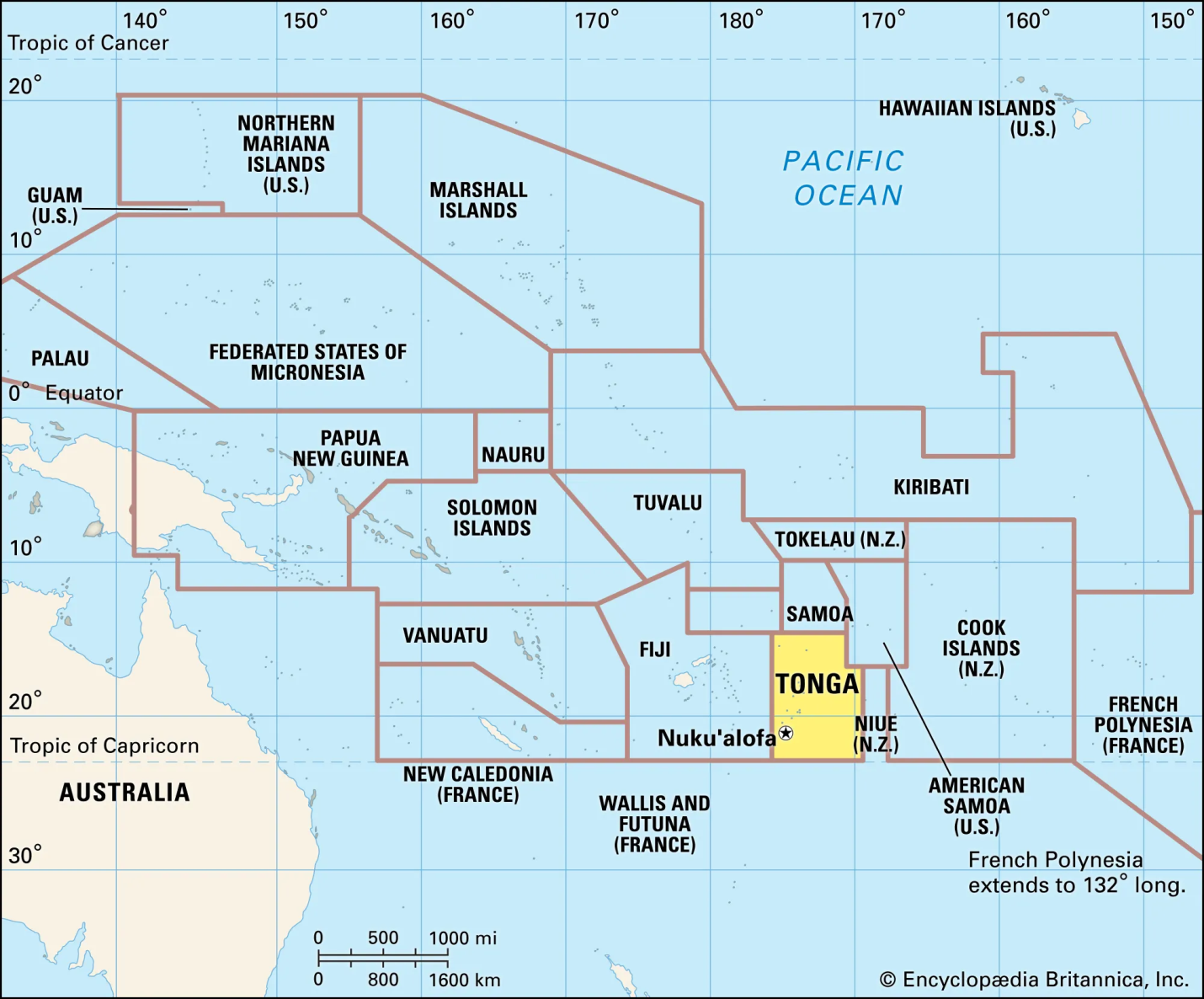
Source:
Down to Earth
Wikipedia
|
PRACTICE QUESTION
Q. Which of the following best describes the geographical location of Tonga?
1. An archipelago in the southern Pacific Ocean
2. Located in Polynesia
3. Situated south of Samoa and east of Fiji
How many of the above statements are correct?
A) Only one
B) Only two
C) All three
D) None
Answer: C
|








